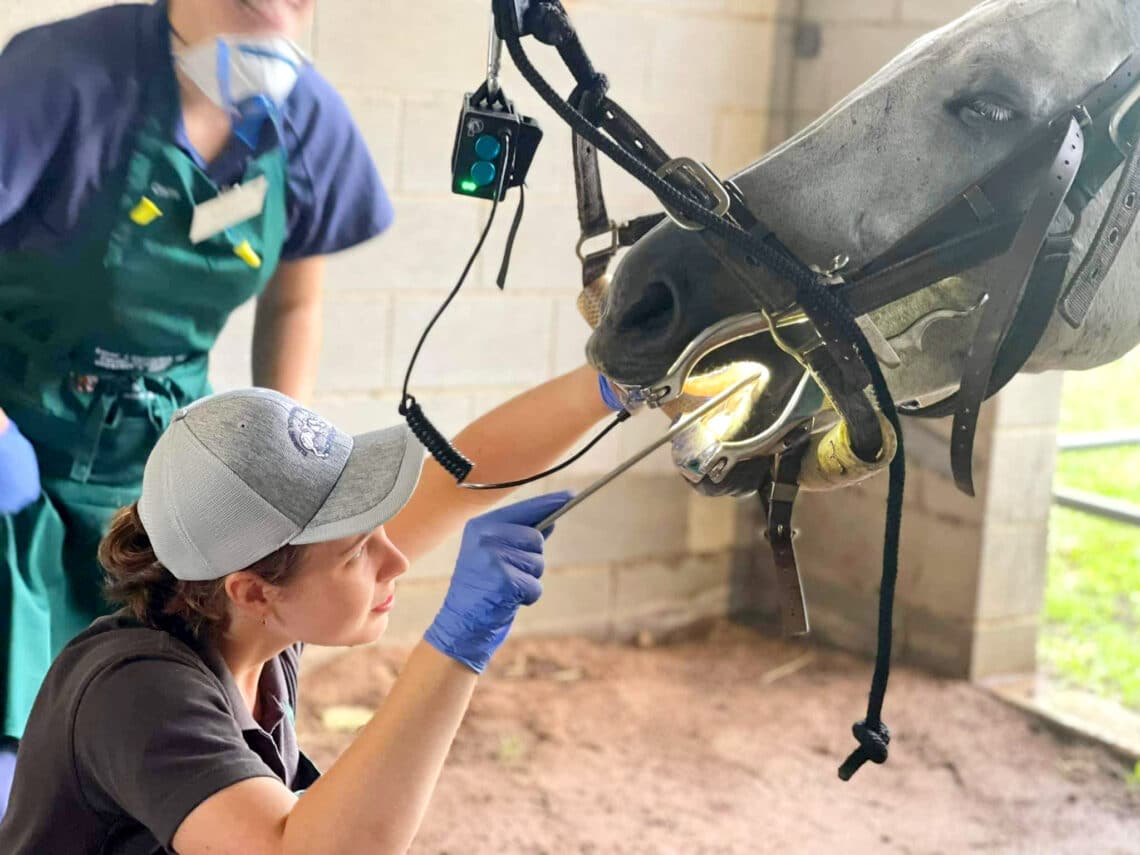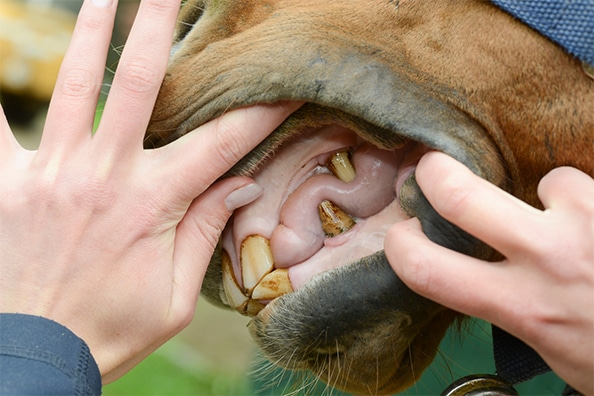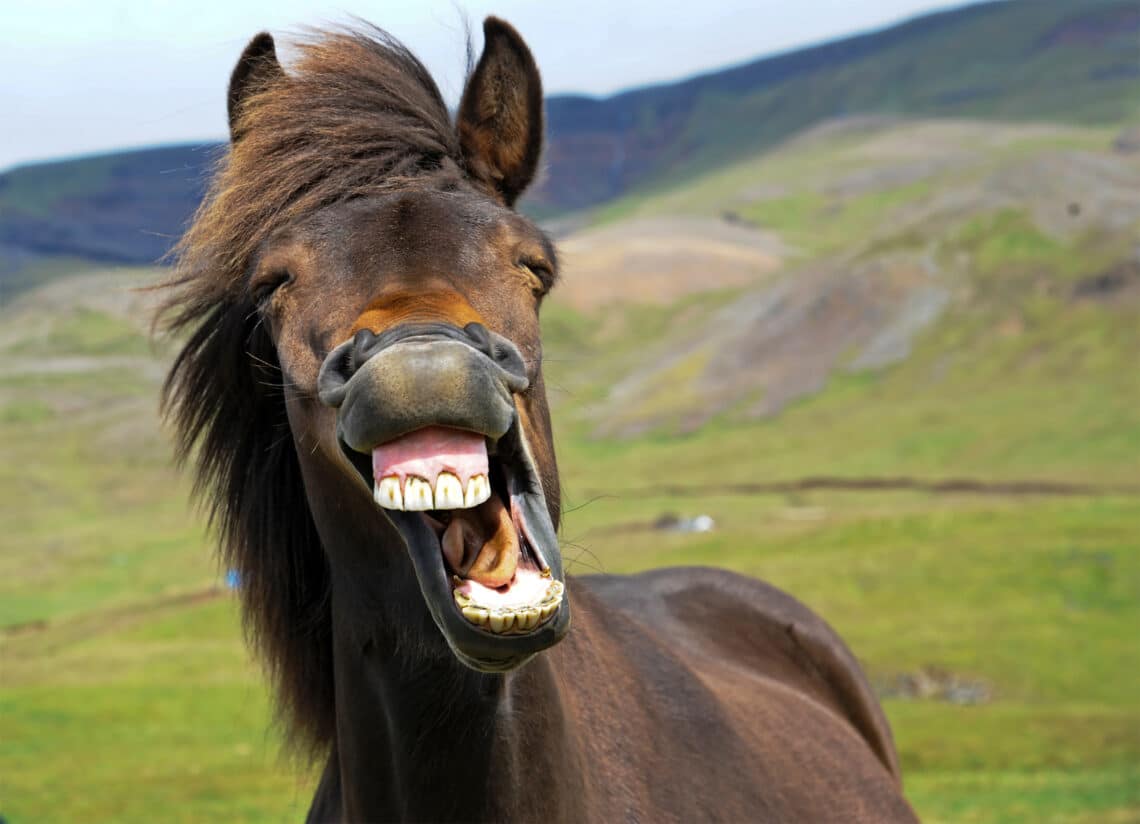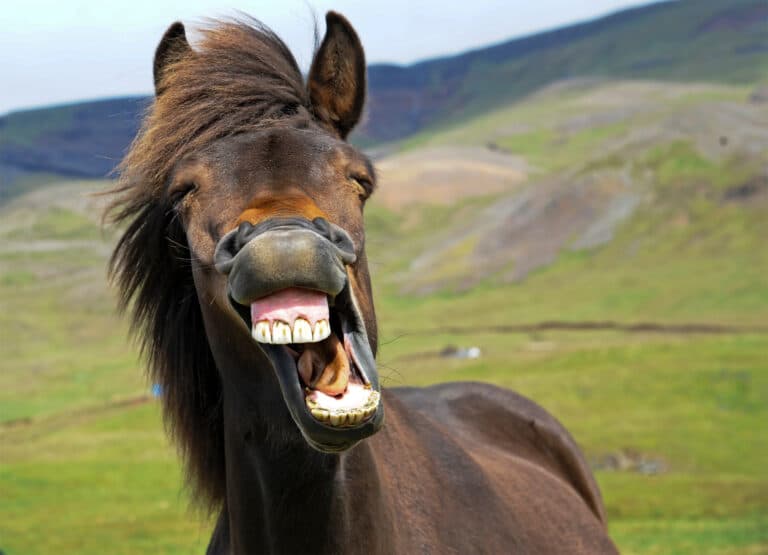
Looking beyond the bit
Equine dentistry is not simply a matter of float and go. DR CAITLYN MITTELSTADT explains the importance of regular professional dental care for your horse.
I’d like to share my thoughts on the importance of dental work in horses and ponies, while at the same time shedding light on the crucial role veterinary dentistry plays in the health and performance of our equine athletes.
I’m sure that at some point you’ve been scolded by your own dentist for your flossing habits, your toothpaste brand, or the length of time you’ve allowed to elapse between visits. Or, perhaps you’ve been driven mad by the pain of an ulcer, cavity, or abscess, and have sought out professional advice. But have you ever considered the comfort of your horse’s mouth and looked beyond the bit?
As a young veterinarian and equestrian I really do love my horses, and my mentors at the Clermont Veterinary Surgery have taught me so much about them. I regularly manage and treat one of the most important parts of a horse’s anatomy, their teeth. Dentistry is incredibly satisfying to those of us who practise it. It delivers the certainty that every horse will benefit and keeps us interested because no two mouths are ever the same.
My interest was piqued by my training under Dr Oliver Liyou, an equine dental specialist at EVDS in Grafton NSW. As my training has progressed, I now work with horses from all disciplines, with clients sometimes travelling over 100 kilometres to visit our country veterinary practice for essential dental care.

A horse or pony should have their teeth checked under sedation by a veterinarian at least once a year. A horse in pain will be unwilling to accept help without the aid of sedation, and only veterinarians who have studied for five to six years at university can legally provide this service. This annual checkup can be the opportunity for you to pose questions to a veterinary professional about the holistic care of your animal. The checkup can be supplemented by a physical examination, annual vaccinations, discussing diet or supplements, worming, stomach scopes for ulcers, and even sheath cleans and checks for penile ‘beans’ – making it a very worthwhile visit for the health care of your elite athlete or your trail companion.
So, what should you look out for that could indicate dental disease in your horse?
- Dropping food or eating slowly
- Irritability without apparent cause
- Weight loss or a poor doer
- Shaking the head while being ridden
- Reluctance to accept the bit
- Repeated colic or choke
- Under the jaw or nasal discharge with pus in cases of tooth root, abscesses or gingival infections.
As a rider, we must be in tune with the health of our horse, their movement, flow, and their behaviour. But how much do you know about one of the most important parts of their body?
In the first five years of a horse’s life, they will grow and shed 24 baby teeth and erupt their permanent dentition, growing 60 new teeth in total with or without the addition of canines and wolf teeth. Unlike humans, horses grow teeth for most of their lives, starting with their deciduous baby teeth, which are pushed out and replaced by their adult permanent teeth before the age of five. The adult cheek teeth and incisors then grow slowly every year until about 18 years of age, allowing them to grind down tough plant material for many hours a day without running out of tooth.
With so many teeth erupting in such a short period of time, a lot can go wrong! The order of eruption can lead to impaction of cheek teeth, retained caps and insufficient space for permanent adult teeth to come through. Foals should be checked for birth defects such as parrot mouth (overshot jaw) and jaw deformities. Yearlings will be evaluated for malocclusions (a misalignment or incorrect relationship between the upper and lower teeth), extra teeth, removal of retained caps, and if necessary, the removal of their wolf teeth to avoid interference with the bit. Consequently, dental visits are important even for the foal, weanling and yearling during their early years of training, not only to teach good handling habits, but also to promote the association between vet visits and a positive, pain free experience.
In the middle years of life (from 10 to 17 years) a horse’s mouth is very stable. The adult teeth erupt slowly and are worn down by frequent grazing. The pasture types and environment will affect this, and it’s one of the most important times to be regular with their annual dental appointments. Equine dentistry can help set them up to enjoy healthy, pain-free lives by ensuring their teeth wear evenly and that no complications are left untreated.

Tough feed, damaged teeth, and uneven chewing can cause asymmetrical patterns of wear in the jaw, which may lead to missing, misaligned or damaged teeth; trapped food; and severe gingival gum disease. Early intervention at annual dental exams with x-rays and sedation are excellent aids to identifying a diseased mouth, coupled with regular rechecks, reshaping and/or surgical intervention to prevent further deterioration.
At approximately 18 years of age and onwards the teeth stop erupting. The teeth your horse now has will be all they have for the rest of their lives; no more will grow. Frequently, the first thing to deteriorate in an older horse – along with worsening arthritis – is their teeth. Unfortunately, it is often the reason we euthanise. The horse stops chewing their food properly, drops weight, grows weak and irritable, and may even become more prone to colic. If the mouth has been well maintained throughout their earlier years, then these problems are less likely. In older horses, yearly checkups will only involve removing sharp enamel edges to prevent ulcers and assist in keeping them comfortable. If there are problems that have not been dealt with in their younger years, they can be very difficult to reverse and may become detrimental to their longevity.
As a younger rider, I wish I’d had a greater understanding of the complex connection between my reins, the bit, and the mouth of my Thoroughbred, Mr Splinter. Now at the ripe age of 27, his teeth are finally letting him down and I find myself asking, could I have slowed this decline? Or have prevented it entirely? Maybe not, but I do know that I can keep his mouth as comfortable as possible as he enjoys his well-earned retirement.
Breakthroughs in veterinary medicine and a greater understanding in all aspects of horse management and welfare is allowing our horses to live and work longer, with improved quality of life well into their senior years. And as veterinarians we take pride in our work to provide this service and improve not only the health but also the wellbeing of our equine patients.
Something my dad drilled into me from an early age was that maintenance is more effective than repair. He was talking about the care of equipment and machines, but the same applies to our horses. Equine dentistry is no longer just a float and go. Provided by a qualified veterinarian, regular dental check-ups, carried out under sedation and with the administration of pain relief as necessary, will prolong the life of your horse. No matter whether they’re performance horses or your trusted trail ride companion, let’s work together to keep our equine partners healthier and happier throughout their careers and into their well-deserved retirement.
Visit Apiam Animal Health to learn more about their range of services.



